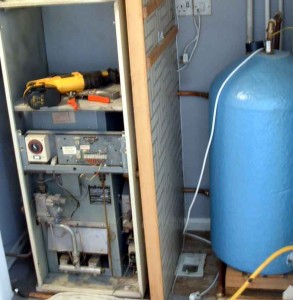More than 22 million UK households aren’t taking the risk of carbon monoxide poisoning seriously according to research published this week.
 The findings, by npower hometeam which surveyed 2,000 people, found that awareness of the risks associated with carbon monoxide remain at an all time low, as more than two thirds of homeowners are failing to get gas appliances such as boiler, cookers and fires checked regularly for faults and leaks. 83 per cent of homeowners with gas fires don’t get them serviced regularly, whilst one in five gas cookers in the UK have never been checked. Only half of homeowners book an annual service for their boiler, even though a third of UK boilers are more than ten years old. One in six questioned never give it a second thought.
The findings, by npower hometeam which surveyed 2,000 people, found that awareness of the risks associated with carbon monoxide remain at an all time low, as more than two thirds of homeowners are failing to get gas appliances such as boiler, cookers and fires checked regularly for faults and leaks. 83 per cent of homeowners with gas fires don’t get them serviced regularly, whilst one in five gas cookers in the UK have never been checked. Only half of homeowners book an annual service for their boiler, even though a third of UK boilers are more than ten years old. One in six questioned never give it a second thought.
Carbon monoxide is the most common cause of fatal poisoning in the UK, with approximately 50 deaths a year, yet just 40 per cent of homeowners have a carbon monoxide alarm, half the number of those with a smoke alarm installed. This means that nearly 16 million homes currently don’t have a CO alarm and more than a third of these homeowners don’t think they need one. Women are more likely to own a smoke alarm (90 per cent compared to 82 per cent of men), and one in five males questioned didn’t know what a CO alarm was.
Joan Coe, marketing manager for npower hometeam, explains: “Carbon monoxide poisoning is often caused by failure or damage to gas appliances which prevents fuel from burning properly and because CO is colourless and odourless, leaks can be difficult to spot. Older appliances are a greater risk when it comes to CO leaks as they’re more likely to be inefficient and malfunction, wasting money and risking health. So it’s particularly worrying that at least a third of UK boilers are more than ten years old, not to mention other gas appliances such as fires and cookers.
“Millions of homes could be at risk of a carbon monoxide leak. But whilst many of us are aware of the risks associated with fire and are likely to have a smoke alarm installed, attitudes to carbon monoxide poisoning have yet to change in the same way, and very few of us have carbon monoxide alarms in place.
“There is a real danger in not having these appliances checked regularly and replaced when they become old, inefficient and potentially dangerous, as it’s not always apparent when something goes wrong. Just by investing in a CO alarm and having these appliances checked annually by an experienced Gas Safe registered engineer such as npower hometeam, you could significantly reduce your risk of CO poisoning.
“Homeowners with boilers reaching the ten year mark should also consider the benefits of installing a brand new A-rated energy efficient boiler, which would not only offer cost savings but is also less likely to malfunction. Furthermore, our team of expert Home Energy Consultants can visit you in your home and help to identify your central heating needs.”
Households in Wales and the North West are most at risk when it comes to problems with their boilers with nearly a quarter of respondents in each area having never booked a service. Meanwhile more than 50 per cent of respondents in the East Midlands, North East and North West had never had their gas cookers serviced.
More than two thirds of homeowners in East Anglia and the North West don’t have a CO alarm and 67 per cent of homeowners in Northern Ireland without an alarm think that they don’t need one.
Those aged under 34 were the least clued up, with one in five 25-34 year olds having never booked a boiler service. That said, 18-24 year olds were the most likely age group to get their gas fire or gas cooker serviced regularly; whilst a surprising 41 per cent of over 55s have never had their gas cooker looked at.
Homeowners can reduce the risk of carbon monoxide poisoning by making sure their home is well ventilated and by looking out for signs of a leak, which can include discoloration around the edges of the gas appliance, a yellow rather than a blue flame and increased condensation. If you have any concerns about your boiler, do not attempt to fix this yourself and always ensure that you call a Gas Safe registered engineer.


